Star Wars offers itself quite smoothly to a magical enigma tour of anime, a means which affords a band of freedom to experience with form, sort, and tone. “Star Wars: Visions,” which was applauded by VII Japanese anime studios, is a single of the franchise’s optimum titles of its Disney era.
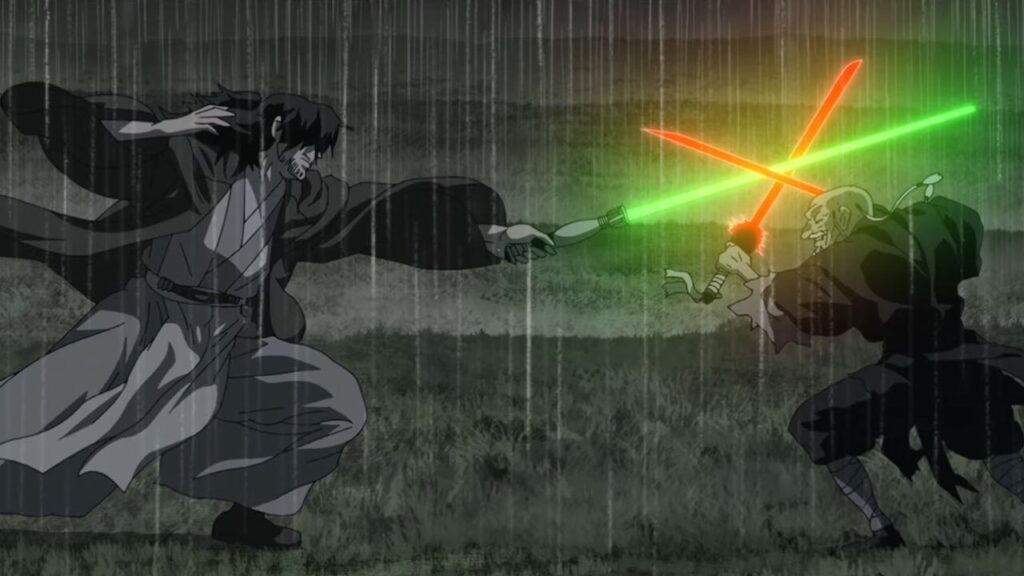
Language: Japanese, English
ABOUT
A secretive ronin helps a village stand up for off bandits sporting Stormtrooper apparatus. A pilot droid, whose soul animal is perhaps Gudetama, sips oil upon a teacup. Astro Boy needs to be a Jedi chevalier. The worlds of animation and space westerns arrive together in Star Wars: Visions. If this sounds like a nightmare, it is. The vital to George Lucas’s universe has been delivered over to seven various Japanese anime studios. The effect is a lush playground sure to wake up the senses.
Real samurai narratives and traditions
Let’s draw this out of the mode: Star Wars: Visions is wonderful, a delight to watch from launch to finish, even if it does watch to lean on the equal subject from one anime short movie to the next. However, Visions’ over-rely on Jedi stories is further than fair. After wholly, George Lucas heavily loaned real samurai narratives and traditions for his phaser sword-brandishing place wizards. It’s only correct that the VII Japanese animation studios mounted to bring Visions to life ought to get a chance to deconstruct Jedi lore now.
I won’t be passing into huge spoilers in this review, just as you should go into each of the latter stories fresh. Since the best of the shorts are just as much as 20 minutes long, telling even the shorter twists can give whole episodes out. But I shall say that each brief does an excellent work of capturing the standard feel of Star Wars while likewise offering anything new, whether it’s optically, thematically, or yet just a new outlook on familiar circumstances.
I’m not overdoing when I mention there isn’t a bad film in this cluster, but there are of the track some outright standouts that you’ll want to happen back to once or thrice a year from here on out.
Stunning, monochromatic reinterpretation of Jedi lore
Studio Kamikaze Douga might be acknowledged from its earlier work on Batman Ninja or Jojo’s Bizarre Adventure. he delivers a stunning, monochromatic reinterpretation of Jedi lore that takes Lucas’ superior heroes another side to their Japanese roots. “The Duel centers on an enigmatic wanderer termed Ronin is at once layout for new ideas around lightsabers, kyber crystals, duel, and a hymn to Akira Kurosawa’s Yojimbo, one of the plenty films that brilliant Lucas’ galaxy. It’s the outset film in the collection and slightly of a mission utterance for the rest of Visions.
It’s a breath of new air.
Another bookmark is “The Village Bride,” which, even though also attractively animated in a hand-drawn 2D mode that’s sadly not often engaged for Star Wars (it should be), establish an environmental subject matter that permeates the rest of the compilation, especially in the heart-tenderness “Lop and Ocho” and the cute “T0-B1.”
Much of these stories explore the heroes and villains’ connection to essence and how they strike the environments around them, a context we don’t often see in the flicks beyond the nasty guys blowing material up. In “The Village Bride,” we see one grouping of characters go on a Pilgrim to pay respect to the natural loveliness of their planet while some other recklessly plows through a hallowed forest.
In “Lop and Ocho,” a family reckons with the Royal occupation and how it could irreparably change the landscape of their world. The little droids of “T0-B1” are steadfast to bring life to a barren globe. Even if all subsistence things are connected over the Force, Visions is particularly of the few Star Wars stories where idols are concerned about the natural condition of their worlds. It’s a breath of new air.
Draws a deep dive into Jedi lore
Ghost in the Casing and Psycho-Pass studio Production I.G. draws a deep dive into Jedi lore in “The Ninth Jedi.” Although the short stands for a dystopian future for the Order that gives familiar vibes, it examines it through the prism of characters not commonly seen in Star Wars. This is such as the earlier swordsmith in a lightsaber-less cosmos. There are more conventional stories of Jedi heroics, too, such as Trigger’s sullen piece, “The Elder,” in which a master and his Padawan face up to great evil on the fringes of interval. But still, then, Trigger, the studio utmost known for creating Kill la Kill, mark it all feel new by exploration of the mythology of the cosmos far, far away via Japanese aesthetics — lightsabers are extracted like katanas, Jedi robes give us more like the hakama that aroused them.
It’s very tricky.
A similar goes for Science SARU’s “Akakiri,” a gloomy film that’s just mendicity for a sequel.
The best of these shorts will go off you begging to know what happens subsequent after the credits roll, notably two installments that deconstruct the story of Luke and Leia, however, from very distinct angles. Besides Studio Colorido’s rock and roll opera-inspired “Tatooine Rhapsody,” which has Boba Fett and Jabba the Hutt dangling out at a concert jointly.
Trigger’s “The Twins” is likely the wildest take on Star Wars you’ll discover in this collection, from Force powers and lightsaber activity on a scale that would score the movies and T.V. shows turn red. It likewise nods to the franchise’s long custom of superweapons but further uses its new take on Major Destroyers as a metaphor for the nominal twins’ evolutionary allegiances. It’s very shrewd.
Geno Studio’s “Lop and Ocho,” in the meantime, explore the sibling’s trope only as a story of a found kin bound by duty to the world they’ve sworn to save. Where Luke and Leia are linked by blood and luck, siblings Lop and Ocho get an option that could entirely alter the face of their home globe. It’s the most riveting narrative of the nine films, with actors you’ll immediately be absorbed by, especially rabbit-like protagonist Lop, who seems destined to grow into the breakaway celebrity of the collection. She’s the personality your little ones shall likely love the best.
In my view, the residual two Star Wars: Visions films are slight efforts. In episode 6, “The Elder” (undertaken by Trigger and writer-director Masahiko Otsuka), with Jedi (Takaya Hashi or David Harbour) along with his Padawan (Yuichi Nakamura or Jordan Fisher) ground on a remote planet in the External Rim after feeling a robust disturbance in the Power. Though it places up the Padawan as negligent and craving activity, it doesn’t render on that notwithstanding being an inch aside from that lesson. “The Elder” winds up being just a pair of lightsaber duels and whatsoever like that.
A New Anticipate bang theaters in 1977
Though age matters not. No matter you’ve been a fan given that A New Anticipate bang theaters in 1977, or are tender your kids to Star Wars for the primary time ever (and Visions is impeccable for that), this cluster lovingly captures the gist of this saga with a range of animation styles that by and extensive makes each short sense visually separate.
Yes, I would have adored seeing a little more range in the sort of stories highlighted in Visions — they all entail Jedi and lightsabers in a few ways — but these are the best iconic elements of Star Wars. How might you celebrate the cosmos far, far aside without them?
FAQS-
Is Star Wars anime any good?
Star Wars: Visions is greatly consistent in its quality for a collection. There are zero bad episodes in the batch, though some are enhanced than others.
Should I watch Star Wars vision in Japanese?
Per with an English dub, nonetheless, the entire series can also be seen with Japanese dialog and English subtitles concerning the studios that formed these shorts. Throughout each short, the tremendous cast of characters is accredited with English-speaking actors with reputable Japanese voice stars.
What is the point of Star Wars: Visions?
“Visions” is an experience in creativity, pressing the edge of what “Star Wars” signify and what it can look corresponding to. Every episode is separate in style, color, and tinge but layered with aesthetic imprints from the studios that produced them.
What motivated Star Wars?
Lucas has told the story and characters in the early 1958 Japanese movie The Hidden Fortress, directed by Akira Kurosawa. that film was a major aspiration. Additionally, the film swayed Lucas to tell the narrative of Star Wars from the point of view of the humble droids instead than a major entertainer.
Where can I find Star Wars anime?
Disney+
Every chapter of the new anime collection series is now broadcasting merely on Disney+. The wait is over for the eventual anime and Star Wars medley! Star Wars: Visions launches on Disney+, with a full episode of the anime anthology.
Who invented Star Wars?
Star Wars is a masterpiece and a space opera movie series that was formed by George Lucas that turned out to be one of the most efficient and prestigious franchises in motion picture record.
Is the Star Wars anime on Netflix?
Netflix isn’t the solely international production firm looking to boost its anime substance.



![Black Clover: Top 15 Strongest Characters [Power Levels] – Power Comparison Black-Clover-anime-hubspot](https://www.animehubspot.com/wp-content/uploads/2022/03/Black-Clover-anime-hubspot-218x150.jpg)
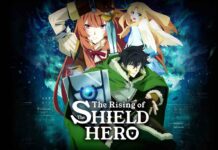
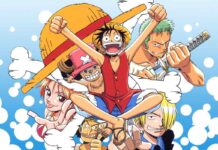

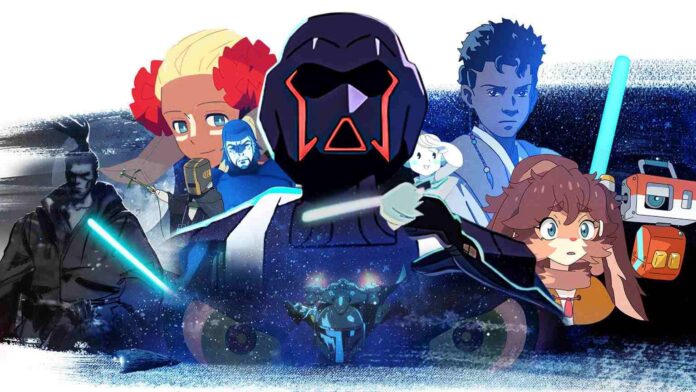
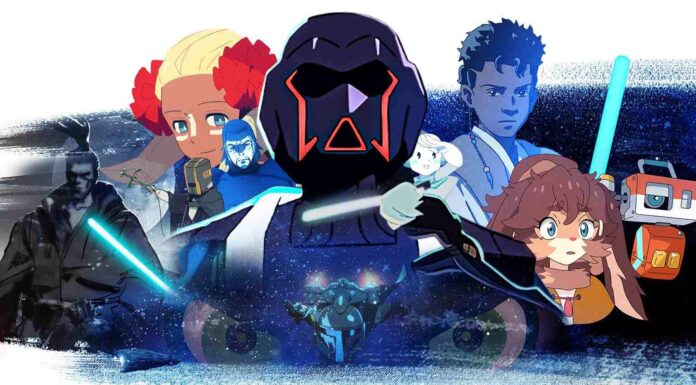



![Black Clover: Top 15 Strongest Characters [Power Levels] – Power Comparison Black-Clover-anime-hubspot](https://www.animehubspot.com/wp-content/uploads/2022/03/Black-Clover-anime-hubspot-100x70.jpg)


